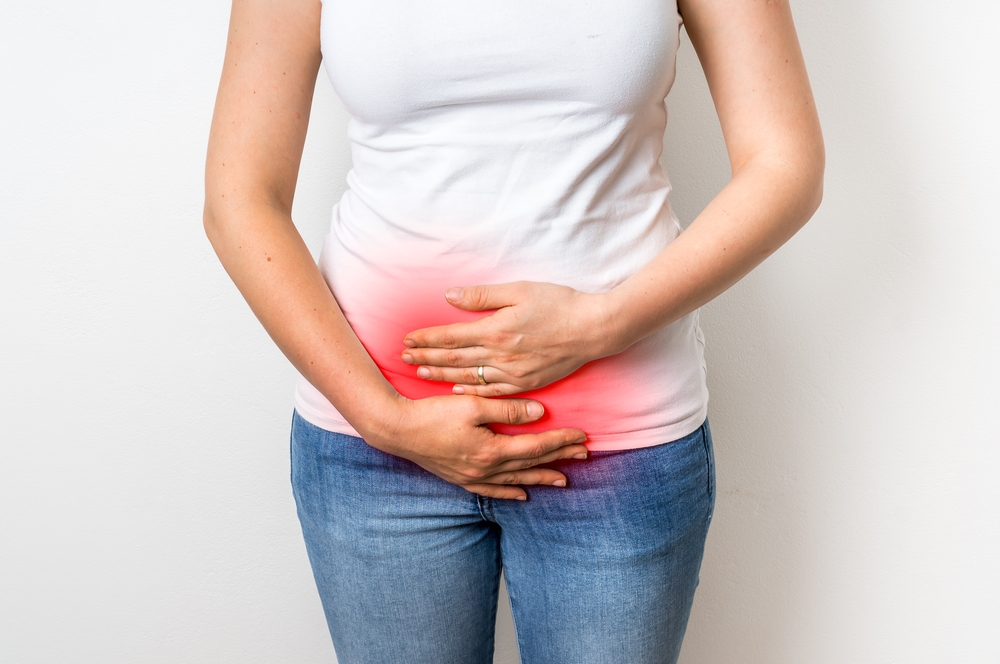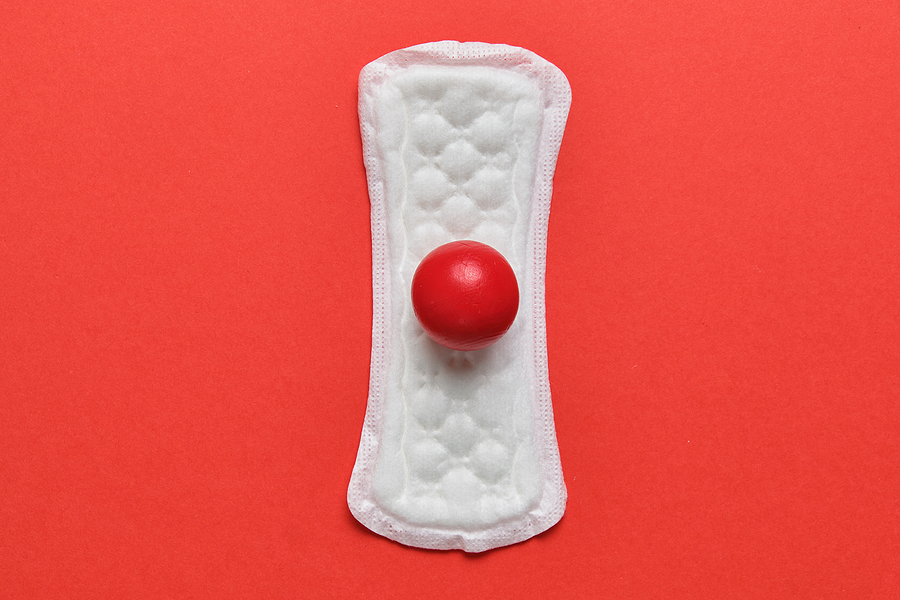It’s not unusual to miss a period on occasion. When our lives get busy and stressful, that stress can impact our bodies and our menstrual cycles as well. I always tell my patients that if you miss a period once or twice a year, especially if you are experiencing stress as you might during special occasions, holidays, deadlines, grief, or travel, there’s no need to worry.
Often when this occurs, you are just experiencing an anovulatory cycle: a cycle in which you do not actually produce and release an egg. This can occur more frequently as you head into perimenopause and your body’s egg production begins to wind down. As you approach menopause and the end of your menstrual cycles, more and more eggless cycles will occur until eventually, they will stop completely.
But missed periods can also occur for reasons other than perimenopause. If you miss three consecutive periods or spot but do not have a full menstrual bleed several months in a row, and you are not pregnant, this is known as amenorrhea.
Primary and Secondary Amenorrhea
Primary amenorrhea occurs when a woman never begins menstruating or menstruation is delayed past age 18. This is very rare and is usually the result of a reproductive abnormality or another medical condition.
What we see more commonly at the clinic is a condition known as secondary amenorrhea, which occurs when a previously menstruating woman stops for a period of time. Sometimes there may be other symptoms such as hair loss or facial hair growth, pelvic pain, milky nipple discharge, headaches, vision changes, or acne.
Some of these symptoms may also occur during perimenopause, however, and sometimes there are no other symptoms at all. So how do you know if your menstrual cycle has stopped because you are approaching menopause or if you have a more significant health concern causing amenorrhea?
Let’s look at some of the causes of amenorrhea so you’ll have the knowledge you need to better understand what’s going on in your body and to help you determine the best course of action to take.
Natural Causes of Amenorrhea
There are several natural causes of amenorrhea such as pregnancy, breastfeeding or menopause. If you’ve gone more than 12 months without a menstrual period and your age is consistent with perimenopausal age ranges of mid-forties and beyond, then most likely, you are menopausal.
Until the point that you have gone 12 months without a menstrual cycle, however, your period may start and stop irregularly over a period of time that may last for months or even years. During this time, it is possible to become pregnant, so if you have had unprotected sex and you think there is a chance you might be pregnant, you will want to test to be sure.
If you are younger than your forties, and you have gone more than three months without a period, it is possible that you are experiencing an early menopause known as premature ovarian failure. But as we will discuss in the remainder of this article, there are many other causes of amenorrhea as well, so you will want to be evaluated by your practitioner to be sure.
Additional Causes of Amenorrhea
Amenorrhea may also be a result of medications or contraceptives. The risk or likelihood of amenorrhea occurring should be something that your practitioner has discussed with you, so you will likely be aware of that possibility if you’ve been prescribed a blood pressure drug, antidepressant, allergy medication, antipsychotic or cancer chemotherapy medication.
In addition, some women who take birth control pills, have an intra uterine device such as the Mirena IUD, or use injected or implanted contraceptives may not have periods. If you are on these contraceptives and not menstruating at all, you should discuss this with your practitioner to ensure it is expected. Many times, however, periods will still occur but they will be much lighter. As long as you have a regular flow, even if it is very light, this is considered normal.
Other causes of amenorrhea that you would likely be aware of include low body weight, stress, and excessive exercise. Women who have very low body weight will experience an interruption in hormone functioning; it is not uncommon for women with eating disorders such as bulimia or anorexia to stop ovulating.
What Effects Do These Symptoms Have On Your Body?
High levels of stress can also disrupt ovulation and menstruation. Stress impacts the area of the brain that regulates the hormones driving menstruation known as the hypothalamus. Extreme exercise of more than 2-3 hours a day may also disrupt menstruation. Often athletes and dancers competing very intensely also experience stress and low body weight as well.
These conditions are also called hypothalamic amenorrhea. In these cases, the brain proteins are being altered due to poor nutrition, restricted calories, or extreme physical activity and the brain is not getting the nutrition it needs to regulate the hormones that drive follicle development and estrogen production. The body goes into survival mode instead of reproductive mode as a result.
With all three of these lifestyle causes, once the imbalance is corrected, regular menstrual cycles may often return. If you are experiencing amenorrhea and none of these conditions are present in your life, there are several other medical causes you’ll want to rule out.
What Else Could It Be? Know What to Rule Out
Menstrual cycles can be disrupted whenever hormone levels are imbalanced; usually menstruation concerns develop when estrogen levels are either very high or very low. There are several other reasons that hormone levels could be disrupted resulting in amenorrhea.
One possible cause is thyroid malfunction. Hyperthyroidism (an overactive thyroid gland) or hypothyroidism (an underactive thyroid gland) can lead to irregular menstrual cycles and/or amenorrhea. A benign (non-cancerous) pituitary tumor and premature menopause (menopause before age 40) are other causes.
Lastly, you’ll want to rule out Polycystic Ovary Syndrome or PCOS and uterine scarring with your practitioner. Uterine scarring can occur after a dilation and curettage (D&C), uterine fibroids, or a Cesarean section. The scar tissue in the uterus prevents the normal build up and shedding of the uterine lining that occurs during menstruation.
PCOS occurs when cysts develop on the ovaries resulting in hormones remaining at consistently high levels rather than rising and falling as normally occurs during a menstrual cycle. This steady elevation in estrogen can cause periods to stop followed by very heavy bleeding known as menorrhagia and insulin resistance often drives it.
If you are in your mid-late forties or older and none of the lifestyle causes of extreme activity or weight loss are present, you’re not on medications and aren’t experiencing the symptoms that might accompany thyroid concerns or PCOS, and you haven’t had a uterine procedure, your absence of periods is most likely due to perimenopause.
But if you are experiencing any of the lifestyle concerns, are on medications, are not in your forties or fifties, or have more extreme or unusual symptoms, you will want to make an appointment to get a pelvic exam and some blood work done to rule out an underlying medical condition.
Take Action
While it may seem convenient, it is not normal to go without periods for more than a few months. Going without menstrual periods for longer periods of time can have other health implications for you such as an increased risk of osteoporosis. If your amenorrhea is lifestyle related, your practitioner may prescribe birth control pills to ensure your body has the estrogen it needs to support good bone health.
Often nutritional and lifestyle changes can correct the hormonal imbalance and restore regular menstrual cycles but sometimes, further intervention is required. Regardless of the cause, it’s important to discuss amenorrhea with your practitioner so that you can treat or manage it and restore your body’s healthy balance.








